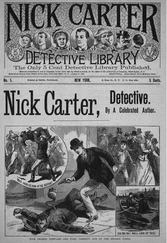But Ellis soon began to understand that his own work here had little to do with engineering. Instead he supervised his line in much the way that one would manage a franchise restaurant. He needed to schedule deliveries of parts, and he needed to manage the crew. And while he was soon orchestrating the deliveries of parts with reasonable success, he didn’t know how to deal with the people. Every one of them had fifteen to forty years on him. They ignored him. He tried to be nice, tried to be funny, tried to be stern. He gave them gifts – donghnuts, birthday cakes, and for Christmas he bought everyone a toy model of one of the trucks that their axles went into. He was an introvert and none of this was easy for him. And none of it worked. The day after Christmas, the toy trucks he had given away lay piled on his desk. He knew he was doing poorly at this. His jokes weren’t funny. His sternness was tainted with meekness. They had been here before him – they had black in the creases of their skin where years of airborne oils and dust had collected – and they would be here after he left. Ellis spent more and more time at his desk, which stood in a little low-walled office near the line. He executed pointless manipulations of columns of numbers in Excel spreadsheets and waited for the days to end, his mind filled with the noises of parts clanking, impact wrenches clattering, forklift engines roaring, the number eight station sputtering and number fourteen grinding. From time to time a loud buzzer sounded to indicate line halts. Several of the machines on the line broke down routinely, and then everyone sat chatting while an electrician fiddled around, joked with whomever happened to be nearby, and eventually told Ellis that a pipe fitter was needed. When the pipe fitter showed up, he worked for a while, then announced that a millwright was needed. The millwright came, tinkered, muttered that the problem appeared electrical. The electrician had departed long ago, of course. One day, after the buzzer had been clamouring for a full five minutes, Ellis left his desk and found no mechanical problems, only the man who’d pulled down his coveralls asleep at his station, forehead against a bearing press. Ellis lost it. He grabbed him by the shoulder and shook him, yelling. The man’s eyes opened wide with surprise and fear, and Ellis shoved him away and circled to yell at several of the others.
When the adrenalin had faded, however, he collapsed at his desk, feeling disturbed, less at what he had done than at how it had happened, in an abrupt loss of control. In losing that, it seemed to him, he lost everything.
To his surprise, for the rest of the week he had a relatively efficient line. But after a weekend the crew resumed old habits and became, if anything, more uncooperative. It struck Ellis that if the only way to do his job was to yell at people who grew negligent about repetitious, numbing work, then probably he didn’t want the job.
Monday of the next week he watched a pair of sparrows hop around in his office doorway. They pecked and preened, observed him with one eye then the other, doubting and verifying. Ellis pulled his earplugs, and faintly in the general roar he heard a chirp. He stood from his desk and approached, hoping to move them toward a building exit, but they only flew into the dark overhead. He turned a circle, then came to a resolution and crossed the plant floor to his manager’s large, clean, quiet office.
A stamping-press accident years ago had taken the ends off two fingers on his manager’s right hand, and he fidgeted with a micrometer in this hand while Ellis uttered a few irrelevant phrases, then finally blurted, as if an admission of guilt, that he intended to quit. The manager boomed, ‘I’ll see if we can find you another position!’ He was half deaf.
Ellis shrugged, then shook his head. ‘I guess I don’t think the manufacturing environment feels right for me.’
‘OK! What kind of job do you think is right?’
‘I don’t know.’
The manager set both hands on the surface of the desk, as if to keep it down, and held them there while he stared at Ellis. Then suddenly he smiled and stood and extended his hand. Ellis stared at the two nub fingers, then realised that this was an invitation to shake, and to leave.
He cleaned his desk and escaped through a side door.
Then it seemed as if he had reached the edge of a cliff over a sea. He didn’t see any sign of how to move forward.
Over the next years he worked various jobs, none of which were in engineering. He spent a great deal of time reading. As a child he had fed on books, and now he continued to read – mysteries, science fiction, Calvino, Eco – books to carry his thoughts from his own life to someplace else. He contemplated returning to school for a degree in English, but couldn’t imagine what he would do with it. Teach? He doubted whether he could inspire kids, or even merely control a classroom. He felt he lacked a vocation, and that if he had one, his life would gain direction. For consolation he read and grew lost in du Maurier, Chandler, Lem, Borges. The Big Sleep and ‘The Garden of Forking Paths’.
One winter he spent his savings on a two-week trip to India, which he’d become interested in through reading Rushdie. He was twenty-five years old. He travelled alone, and he found himself anxious and overwhelmed by alienness and sensory density. And, diarrhoeal. At the end of the trip he could hardly say what he had seen except a swirl of colours, gods over doorways, filthy toilets, tattered clothes, outstretched hands. To beggar after beggar he had given away more rupees than he could really afford. He kept thinking that, but for the accident of where he had been born, this life might be his own. After landing again in the US he had to wait for one more flight to carry him home, and he sat in the airport terminal feeling flaccid and ill. His head contained a miasma and the objects around him trailed green auras. As he watched through the windows snow began to fall and soon gathered into a white, obscuring storm. Periodically he trooped to the restroom to discharge his sickness and sip at the water fountains. Flights were delayed. He sat queasy with his bag between his legs and dozed. Delay passed into delay. People around him collapsed to the floor and slept or gazed at windows where the snow fell fast and straight down.
After an indeterminate sleep he stood and began to walk. At the food stalls uniformed employees served the trapped with grumpy languor. Along the hallways travellers lay propped on bags and one another. The fluorescent lighting blued their lips, yellowed their eyes.
Seeing Heather’s face here jolted him, and he stopped in the traffic of the hallway and let people push by. He had last seen Heather Gibson a decade earlier, when he was fourteen and she was sixteen. His memories of her were surrounded by glinting, uncomfortable emotions. She sat with her back against a painted concrete wall, head tilted, eyes closed. A small woman. The skin of the left side of her face bore a slight shine of scar tissue, and Ellis wondered if he would have noticed it at all if he hadn’t been looking for it. Her dark hair, which had been curled when they were in high school, now fell straight and neat around her face. But aside from this and the scarring, something more in her face seemed strange, although he could not identify it. Perhaps only age. She had one arm propped on a duffel bag and a small blue blanket lay over her feet. She appeared to be alone. Memories crowded in, of her, and of his half-brother Christopher, who had been her boyfriend – so many memories and of such varied feelings that they crowded and confused one another. She had been burned in the aftermath of the accident that killed Christopher, and as Ellis stood staring with a sensation of wide confusion his attention returned again and again to the alteration of her face.
Читать дальше












